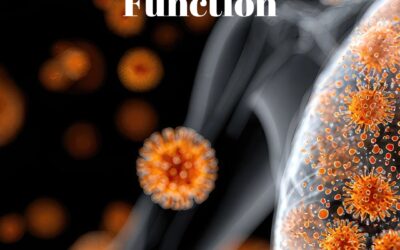Node Smith, ND
A recent research article supports what naturopathic medicine has known for generations, that antibiotics kill helpful bacteria and cause more problems than they solve. The research study has found that the body’s own commensal bacterial flora (microbiome) is effective in maintaining immune cells and killing off certain oral infections.1
Researchers actually consent that antibiotics actually kill “good” bacteria
The researchers actually consent to the finding that antibiotics actually kill “good” bacteria which are helping to keep an infection and inflammation at bay. This research is coming out of an acknowledgment that the overuse of antibiotics has become a concern, and may be causing more harm than good. This is especially the case in regards to antibiotic resistance, which is continuing to grow as a danger in hospital settings and other healthcare venues.
Research into oral health specifically is relatively new
But the research into oral health specifically is relatively new, though links between oral infections and heart disease and systemic infections has been established. Pushpa Pandiyan, an assistant professor of biological sciences in the School of Dental Medicine, led the research team to look at commensal bacteria, their fatty acids and their effect on immune cells that work to protect against certain infections of the mouth.
Team examined the “short-term maintenance” of Tregs and Th-17 cells
Specifically, the team examined the “short-term maintenance” of Tregs and Th-17 cells – two types of immune cells – in resisting Candida infections. The findings were that these innate defense mechanisms of the body were indeed very effective at limiting infection and controlling inflammation, and that antibiotics disrupted this ability.
“We set out to find out what happens when you don’t have bacteria to fight a fungal infection,” Pandiyan said. “What we found was that antibiotics can kill short-chain fatty acids produced by body’s own good bacteria.”
“We have good bacteria doing good work every day, why kill them?” Pandiyan added. “As is the case with many infections, if you leave them alone, they will leave on their own.”
“Of course, antibiotics are still needed for life threatening infections. No question about that. Our bodies have many natural defenses that we shouldn’t meddle with,” she said. However, needless overuse of antibiotics is not helpful, she said.
“Also, we know there is a definite link between oral health and overall health,” she added.
Study could have broader implications on protective effects of “resident microbiota”
Pandiyan said the study could have broader implications on protective effects of “resident microbiota” in other types of infections.
Source:
 Node Smith, ND, is a naturopathic physician in Portland, OR and associate editor for NDNR. He has been instrumental in maintaining a firm connection to the philosophy and heritage of naturopathic medicine among the next generation of docs. He helped found the first multi-generational experiential retreat, which brings elders, alumni, and students together for a weekend camp-out where naturopathic medicine and medical philosophy are experienced in nature. Four years ago he helped found the non-profit, Association for Naturopathic ReVitalization (ANR), for which he serves as the board chairman. ANR has a mission to inspire health practitioners to embody the naturopathic principles through experiential education. Node also has a firm belief that the next era of naturopathic medicine will see a resurgence of in-patient facilities which use fasting, earthing, hydrotherapy and homeopathy to bring people back from chronic diseases of modern living; he is involved in numerous conversations and projects to bring about this vision.
Node Smith, ND, is a naturopathic physician in Portland, OR and associate editor for NDNR. He has been instrumental in maintaining a firm connection to the philosophy and heritage of naturopathic medicine among the next generation of docs. He helped found the first multi-generational experiential retreat, which brings elders, alumni, and students together for a weekend camp-out where naturopathic medicine and medical philosophy are experienced in nature. Four years ago he helped found the non-profit, Association for Naturopathic ReVitalization (ANR), for which he serves as the board chairman. ANR has a mission to inspire health practitioners to embody the naturopathic principles through experiential education. Node also has a firm belief that the next era of naturopathic medicine will see a resurgence of in-patient facilities which use fasting, earthing, hydrotherapy and homeopathy to bring people back from chronic diseases of modern living; he is involved in numerous conversations and projects to bring about this vision.





















